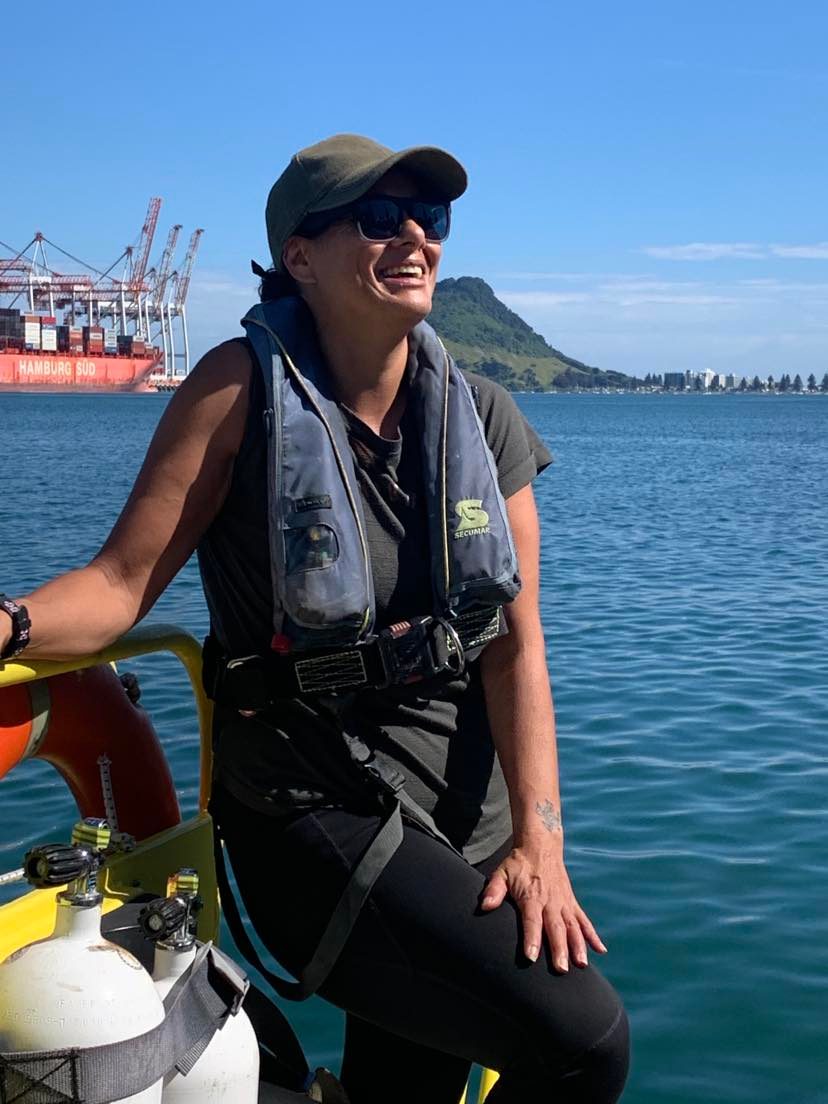Kia Maia Ellis
Tonganui Scholarship Recipient 2022
Kia Maia Ellis (Ngāi Te Rangi, Ngāti Ranginui, Ngāti Ruanui) was one of the three successful Tonganui Scholarship recipients who aims to develop a transdisciplinary approach to address declining kōura (crayfish) populations in Tauranga Moana.
She is currently in her second year of a PhD with the University of Waikato and is completing research towards a transdisciplinary mātauranga Māori and science approach to enhancement and resilience of puerulus kōura (Jasus edwardsii) in a changing climate.
Kia Maia plans to utilise the fund to facilitate active wānanga, sourcing pūkenga/local expertise (kuia, koroua, weavers, fishermen etc.) for mātauranga ā iwi wānanga, workshops, and field trips.
“The design of this study stems directly from the needs and aspirations of our people in the management of customary fisheries and the Mātaitai Reserve in Tauranga Moana,” says Ellis.
“The research will assist with understanding the current state of the kōura population, understand the effects of climate change, and develop mātauranga Māori and marine science-based tools and knowledge to address the cumulative effects on the sustainability of kōura in Tauranga Moana.”
These hui will explore harvesting kōura in the face of climate change and look at various local harvesting methods, to then design, create and trial mātauranga-centred pēpi kōura collection methods.

Kaupapa update from Kia Maia
What were the major outcomes of this kaupapa?
1. Building Māori capacity in marine science included my own self development in aquaculture plus 3 other rangatahi joining the project and deciding to study marine science.
2. Growing Māori development in marine science and the aquaculture sector.
3. Building upon our own kaitiakitanga knowledge systems in relation to our moana, maramataka, tikanga and more.
4. Utilising science to make well informed customary fisheries management decisions.
5. Promoting awareness for our communities in relation to kaitiakitanga and marine conservation.
All outcomes in line with my objectives to activate kaitiakitanga and support the sustainability of taonga species.
What were some of the challenges your kaupapa faced during its implementation?
The biggest challenge was ensuring that we were able to maintain good temperature and water quality for the aquaculture portion of the project. Hence the need to secure more resourcing for the equipment required to build new recirculating aquaculture tanks that included chiller systems and biofilters. Another challenge was accessibility to the best sites for collecting pēpi kōura. As these sites were under port wharves we needed to time monitoring for when ships were not preventing access to sites. Nature itself was also a challenge to our matauranga based Tau Tāruke method as it was a poor settlement season when we put our Tau Tāruke in the water for a 3 month trial.
How did this kaupapa benefit from the Pou Herenga Tangata Award?
The Tonganui scholarship enabled me carry out extra engagement with our hau kainga, and it provided resourcing that supported me to be able to focus more on the study and I was able to purchase more tools to support the monitoring and research.
What are your future plans for this kaupapa?
This project is definitely continuing forward to complete the enhancement component to release the pēpi kōura into a protected area. We are currently drafting an application for rāhui so that they can be monitored without human predation after rele. This will determine the success of using aquaculture for on-growing kōura to enhance future sustainability.



